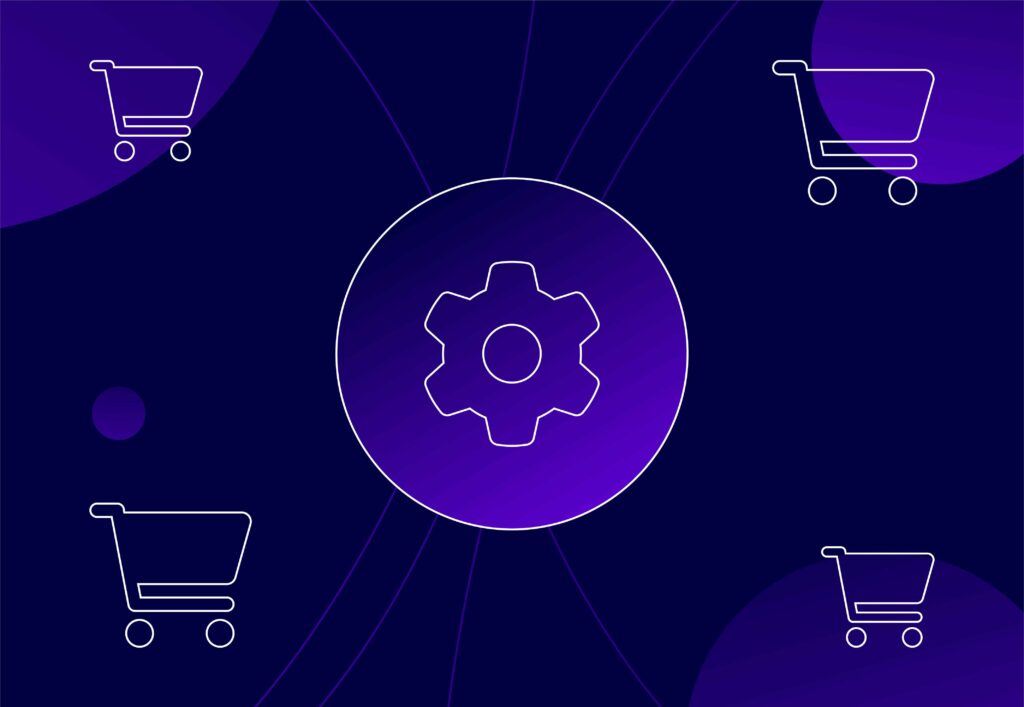
Social Media Has Changed Once Again

The ever-evolving landscape of social media is never one to shy away from controversy, constant updates, new feature trials and one-upmanship. It can be difficult to keep up, and for businesses to thrive in social they need to be on top of each and every tiny change and its consequences. With that in mind, we’ve compiled all the most significant social media updates and news from October.
Firstly, let’s tackle the beast that is Facebook. No one quite does frequent updates and new feature rollouts like Facebook. Out of all the social media platforms, Facebook undoubtedly faces the most amount of criticism and is under the most scrutiny, probably a result of the great Cambridge Analytica scandal of 2018.
Removal of Grey Verification Badge
One of the most noticeable of changes that Facebook made in October was the removal of the little grey verification badge next to pages. (Make sure you don’t get these confused with the blue verification badges, those will still be present for public figures and brands.) The grey verification badge was given to your page if you’d completed the identification process and Facebook had classed you as an ‘authentic page’. This isn’t a game changing move from Facebook. Facebook says that this won’t impact the way that the page appears in search results, so shouldn’t have too much of an impact. This feature is being removed as it was confusing for the user, so it’ll be good to see what their next move is to replace this.
‘Suggested Time’ Feature for Scheduled Posts
Throughout October, Facebook has started testing a new ‘suggested time’ feature for scheduled posts. This is a new step for Facebook, but still leaves them one step behind third party scheduling platforms, such as Sprout Social, Hootsuite and Buffer, that have been using this feature for years. Facebook’s current scheduling tool for pages is far from the most user-friendly form of scheduling tool in social media, with constant bugs and errors plaguing the space. This new ‘suggested time’ feature is hopefully the start of them revamping this process and helping page admins post when their fans are most likely to engage. Big win for the fans of organic social.
Search Results added to Automatic Placements
Facebook is now updating its search ads to be available for all business and adding search results to its automatic placements. This should help advertisers reach people who are actively shopping. As a member of the automatic placements, advertisers can now choose to run their adverts on all the standard placements and also the new search results page, just with the click of a button. At the moment it is only going to be available for a limited set of English and Spanish terms whilst Facebook trials it, but it will be interesting to see whether this placement will be effective.
Responsive Ad Copy Roll Out
In October Facebook very quietly rolled out its new responsive ad copy feature in Ads Manager. This new feature is very similar to Google’s responsive search ad format that was introduced in 2018. Fundamentally, it’s a new way of AB testing, without actually having to do the AB test – Facebook does all the legwork for you. Once you get to the ad level creative section when building a campaign, Facebook now gives you the option to add multiple variants of headlines, copies and descriptions. From here, all the variant testing is done by Facebook, so you can just sit back and see which text is the most effective.
News Section Testing
Facebook has started testing a new feature for journalism, aptly called ‘News Section’. According to Campbell Brown, VP Global News Partnerships at Facebook, the roll out will allow personalised news experiences, all from Facebook verified publishers who adhere strictly to their Publisher Guidelines. Brown explains how the feature is significant because ‘journalism plays a critical role in our democracy. When news is deeply-reported and well-sourced it gives people information they can rely on. When it’s not, we lose an essential tool for making good decisions.’ Is this just an attempt to battle the huge amount of fake news that floods Facebook? We’ll see how it pans out.
** It’s worth noting that TechCrunch has a very strong opinion on the Facebook News Section and its abuse of publishers. Their article ‘Why the Facebook News Tab Shouldn’t be Trusted’ is definitely worth a read.
Facebook Faces $40 Million Settlement
Facebook is certainly no stranger to a settlement, but October’s big $40 million settlement is bound to leave a sting. Facebook was accused of inflating video view metrics in order to attract more ad spend from advertisers. With average viewership metrics increasing by up to 900% as a result of Facebook’s ‘errors’. Sneaky move. They did admit to this in 2016, and the metrics have since been corrected, however the case has only just been settled this month.
Cambridge Analytica Data Scandal Fine
Another discipline for Facebook in October, in the form of a £500,000 fine for its role in the Cambridge Analytica Scandal. A measly amount in the grand scheme of things, Facebook did originally appeal the penalty, subsequently launching the Information Commissioner’s Office’s counter-appeal. As part of the agreement, Facebook didn’t have to make an admission of liability. Not a bad deal for Facebook really.
Instagram doesn’t receive as much controversy as its parent Facebook, but still made a few tweaks to its platform throughout October. The most noticeable of them all, the ‘following’ tab.
Removal of Following Tab
It may seem like a small change, but if you’ve ever been caught out liking pictures that you shouldn’t, you’ll be fully aware of the ‘following’ tab. Instagram made the bold move in October of removing this section entirely. The ‘following’ tab displayed the activity of your friends; the pictures they liked, commented on etc., originally with the aim of helping users discover new content. With the growth of the ‘explore’ page, the ‘following’ tab was made redundant. Users don’t necessarily seem pleased about this change however. It appears that Instagram users quite enjoyed being able to spy on their other halves.
Dark Mode
Along with the new iOS and Android updates in October, Instagram introduced support for dark mode. They’re way behind Twitter who launched their dark mode back in 2017, but users are still very appreciative of the update (finally).
Event Invite Stickers
Instagram is reportedly trialing a new event sticker for stories. Instagram stories are constantly developing and releasing new features, but this update could be really useful for brands. By adding these event stickers, brands can encourage engagement and add an element of exclusivity to the events, as you must be a follower to RSVP.
#AD Posts Ban
It’s not particularly shocking when you see a, normally weight loss related, sponsored Instagram post being banned. October was no different. We saw a trio of influencers having their posts banned by the ASA for being ‘irresponsible’. Katie Price, Lauren Goodger and Georgia Harrison all had their weight loss posts banned, the ASA emphasising that all three portray ‘artificially thin’ aesthetics. The advertising regulator is constantly battling the influx of influencers posting about weight loss gummies, coffees, drinks, lollipops and more. They have published an advertising guide for influencers to help influencers stay within the boundaries of what is acceptable and what isn’t, however a lot of the responsibility should lie with the brands themselves.
Twitter manages to keep out of quite a lot of controversy and makes very few changes to its platform, preferring to stick to the fundamentals rather than constantly trialling new features. That being said, Twitter has been in the firing line in October.
Misuse of Personal Information
Twitter has admitted to misusing user’s personal information for ad targeting purposes. Twitter was accused of using email addresses and phone numbers, that had been provided for account security purposes, to help advert targeting. This data was used in their ‘tailored audience’ advertising. Twitter has since apologised and has not yet been given a fine, bearing in mind that Facebook got hit with a $5 billion dollar fine earlier this year for basically the same mishap. Twitter says it has now corrected the issue and it won’t happen again, but don’t they all say that at some point?
Increased Daily Active Users
Twitter has had an extremely positive Q3 in terms of monetisable daily active users (mDAU), with an increase of 17% YOY. This is the biggest increase Twitter has seen since it introduced mDAU in Q4 2018. However, the above data scandal has still hit them hard. Monthly active users may have increased, but revenue has slowed significantly throughout Q3. As they had their ad targeting issues with the data misuse, Twitter scrapped a lot of it’s targeting features, leaving advertisers in the lurch a little when it comes to targeting. We’re still waiting on a replacement system too. As a result, revenue is stilted. Can it recover in Q4? We’ll have to wait and see.
LinkedIn is constantly looking for ways to improve its platform and encourage professionals to use it to encourage real life networking too. They’ve released a couple of key updates throughout October, let’s take a look.
Events Tool Launch
LinkedIn has officially launched its Events Tool. The feature will make it easier to organise meetups with your fellow LinkedIn connections. You can invite connections using standard demographic targeting, or share on your feed to reach more people. It then works in the same way as Facebook’s events, allowing you to track attendees, publish updates etc. Events can be public or private, and attendees can also invite connections too. This is a huge step to help push networking events, talks, dinners and more. Bringing LinkedIn into the real world. It will be interesting to see how brands will jump on this new feature in the coming months.
Company pages
LinkedIn has made a couple of amends to company pages in October. The most notable being an ‘employee notifications’ option. This feature allows company page admins to notify their employees of a new post by that page. This will make it easier for employees to know when there is a post to share and engage with. If like me, you’re constantly hounding your team to share your posts, you’ll really appreciate this. There is a limit however, in that you can only notify your employees once every seven days.
So there you have it, our October Social Roundup. As ever with social media, there are so many updates and new releases, as well as data scandals and court cases. The key takeaway from October is that social media, specifically Facebook, is trialling so many new features that the whole landscape will be completely transformed by this time next year. So try and keep up!




